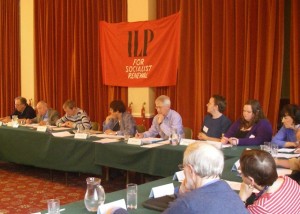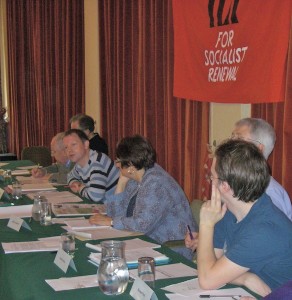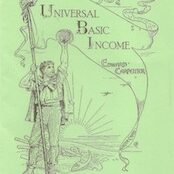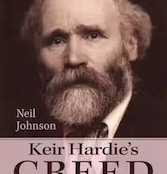Around 40 ILP members, friends and fellow travellers gathered in Scarborough on 7/8 May for the organisations’s annual weekend school, where the politics of the ILP, the coalition government and the Labour Party came under scrutiny.
“Why have people like us not given up?” asked Barry Winter at the start of two days of discussion, debate and deliberation on the left’s current predicament called ‘Combatting the Coalition, Constructing an Alternative’. It was a pertinent question.
 “What is it that guides us?” he asked, when so many others have walked away, and the world we thought we were making has slipped out of view. How should the left respond when the old certainties have been shredded by history?
“What is it that guides us?” he asked, when so many others have walked away, and the world we thought we were making has slipped out of view. How should the left respond when the old certainties have been shredded by history?
Winter was presenting the ILP’s new perspective (The ILP: Our Politics), a redrafting of an NAC document first presented in 2010.
This is our attempt, said Winter, to come to terms with the last 30 years in a way that’s relevant to the world today without abandoning what’s most valuable in our history. The world has changed around us, and we are still struggling to comprehend.
“While New Labour threw out all that was old, and the old left closes its ears to any idea of change, we have to work out what to discard and what to renew,” he said. “The issue is not whether to respond but how to.”
Winter described the new statement as “a critique of the workings and culture of capitalism”.
“It is our political morality that stays firm, while our perspective is what we have to revise,” he said. “The ILP draws from a long tradition of ethical socialism, but sometimes we existed in comfortable isolation, free from engaging in the world of the here and now. This is an attempt to respond to the free market today but also to suggest ways to build a countervailing force.”
Former MP Harry Barnes put it well in the following discussion when he described the statement as “an approach to politics and how we should act”, rather than a programme or set of demands.
“This document seeks to look for progress towards democratic socialism but realises it is not a simple task,” he said. “It’s a valuable document, and we need to expand it and push it further. The important question is how we can advance the ideas.”
His broad endorsement was backed by others who said they felt engaged by the statement, and believed it would help them engage with others.
In his response, Winter quoted from the early socialist Edward Carpenter who in 1901 made a distinction between his politics and that of the Fabian Society when writing an article in the ILP’s Labour Leader, called ‘A Thought for May Day’.
He said he was seeking more than simply an end to material inequality. He wanted socialism to “clear the skies and purify our streams, and secure for us great tracts of public land in which the life of the people may develop. It must teach us to sing once more at our work, and to rejoice in it.”
“That may seem a long time ago, and some may find his remarks a bit sentimental, but his politics was about how to lead a good life and it still has something to teach us,” said Winter.
“More recently it has been the peoples of the Middle East who have been teaching us about hope and struggle against tremendous odds. What particularly impressed me was the important role young people’s football associations played in the Egyptian revolution.
“According to Dave Zinn: ‘Football fan associations have been at the front and centre, organising everything from neighbourhood committees that have been providing security for residents, to direct confrontation with the state police.
‘The involvement of the clubs has signalled more than the intervention of sports fans. The soccer clubs’ entry into the political struggle also means the entry of the poor, the disenfranchised, and the mass of young people in Egypt for whom soccer is their only outlet.’
I look forward to the day when we can say something similar here.”
Cuts and consequences
In the second session, Matthew Brown introduced a discussion on the Conservative-led government, its genesis and deceptions, the marketising mania of its cuts programme and responses to it.
 Delegates spoke of their own experiences of the cuts, the consequences that are already being felt at work, in communities, and across the country. Some bemoaned “the paucity of Labour’s response”, while others expressed concern at the Tories’ agendas – such as the introduction of greater competition in higher education and the NHS, and the “smoke-screen” of localism and Cameron’s ‘big society’.
Delegates spoke of their own experiences of the cuts, the consequences that are already being felt at work, in communities, and across the country. Some bemoaned “the paucity of Labour’s response”, while others expressed concern at the Tories’ agendas – such as the introduction of greater competition in higher education and the NHS, and the “smoke-screen” of localism and Cameron’s ‘big society’.
There was an important reminder that we must distinguish between the scale of the cuts and their consequences, that it’s not just the depth and speed of the cuts that should concern us but the Tories’ ambitions to change the way services are provided and accessed.
The real danger of the reforms, said one delegate, is that services will become commodities, available at market rates, not provided as common goods. The question we need to ask is what kind of system do we want. The health service, he added, is at least one area where the idea of public service as a common good still finds traction in wider society.
Winter suggested we seek a commitment from the Labour leadership to restore public services when the economy allows. “We should say, ‘We’ve been robbed, we want our services back, and this is how we want them to look,’” he said.
Labour renewed?
The third session focused more closely on the Labour Party, and in particular on the proposals for party reform contained in the consultation document, ‘Refounding Labour’.
Will Brown introduced the discussion by pointing out that the document contained no firm proposals of its own but many open-ended questions.
“There are three possible reasons for this,” he said. “Either they are genuinely open to ideas, or they don’t know what they’re doing, or they know fine well and are using the consultation exercise to cover their intentions. Which of those you believe depends how cynical you are.”
The ILP, of course, has a long history of campaigning for greater party democracy and Brown suggested there are aspects of the paper we should welcome – the call for better voter identification schemes, for example, and the overall vision it appears to portray of a committed, campaigning, active and engaged party.
“We should respond positively to the ideas here about building an outward-looking party, and creating a movement in wider society,” he said.
But there are also dangers, not least in ideas for a new tier of Labour supporters whose relationship to full party members and party decision-making is unclear.
The process of consultation is extremely flawed, Brown concluded. There’s a huge array of questions with very few specific proposals, making coherent responses very difficult. Yet, from the responses it receives within the short time available (the deadline is 24 June), Labour’s national executive committee will put forward proposals to conference this September.
The following discussion ranged over the role of affiliated societies; the need for better political education within the party; and included a call for the role of party chair to be elected, not appointed.
There was general agreement that the ILP should have a positive attitude to the idea of Labour supporters, and that they should be included in party political education initiatives and other events, not just used at elections. But when it comes to decisions about party policy, leaders or election candidates, those should only be open to members. “There must be a clear division between members and non-members,” as one put it.
Brown pointed out that this argument would meet a lot of resistance. “The argument for membership has to be won,” he said. “A lot of people outside the Labour Party think it’s an outrage that parties reserve the right to choose their parliamentary candidates. The leadership will come under a lot of pressure through the media and others to be more open and embrace a primary-type system.”
There may not be many answers in the Refounding Labour document, but by the end of a weekend of informed and committed discussion ILPers and friends at least had one answer to Winter’s opening question – one reason we don’t give up is because of sustaining and companionable events such as this.

—-
To read Barry Winter’s presentation on the ILP’s new perspective, click here.
Matthew Brown’s introduction to the discussion on the Tory-led government is here.
Will Brown’s dissection of the Refounding Labour consultation can be read here.



20 May 2011
[…] was an introduction to a discussion on The ILP: Our Politics at the ILP’s 2011 Weekend School. Other talks from the weekend on the Conservative-led government and the Refounding Labour process […]
16 May 2011
[…] This was the introduction to a discussion on ‘The politics of the conservative-led government: personal experiences of the coalition’s policies and the anti-cuts movement’ at the ILP’s 2011 Weekend School. […]